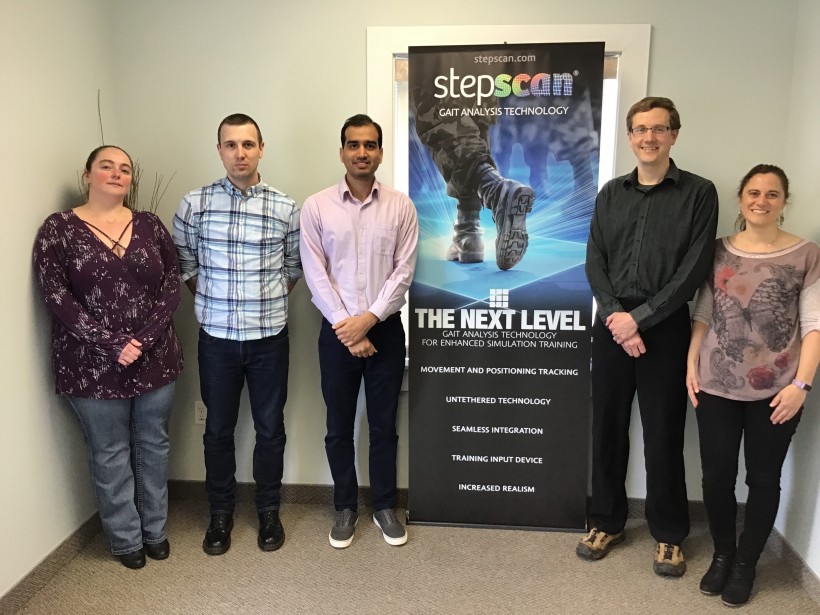Stepscan Technologies, the Charlottetown company that has developed pressure-sensitive floor mats, has launched a new product that helps the military train soldiers in combat techniques.
Primarily a medical device company, Stepscan has developed floor tiles that can analyze people's gait and footprints, which reveal such medical information as their balance, the health of their joints and how they are recovering from injury.
Last month, it launched a non-medical product, StepTracker, which covers a wider area and analyzes the movement of more than one person. Using StepTracker, military trainers can teach groups of soldiers how to move in a combat situation and analyze the performance of each trainee.
“When doing a patient assessment, you don’t do more than one patient at a time,” said CEO Crystal Trevors in an interview. “Here, they’ll be looking for the position of individuals and the relative position of individuals within a group.”
Trevors said the company’s main market is still the medical sphere, in which Stepscan’s pressurized tiles can be used to assess health. She said that ideally her seven-person team would like to find a company to buy the military application because it is so different to the medical business.
With the medical device, buyers purchase a few pressure-sensitive tiles so the user has about 400 square feet of area to walk across. The sales are fairly straightforward. In fact, in the first five months of 2019, Stepscan has already sold as much of its core product as it did in all of 2018.
The military application can involve, say, 4,000 tiles over 15,000 square feet, covering two or three rooms in a mock building used for training exercises. Trevors said the trainers can use it to monitor a group of four soldiers entering a building, making sure each individual moves and faces in the right direction at the right time throughout the course of the exercise.
“The biggest challenge is in distinguishing what footprint belongs to which people and detecting which people were actually in which space,” said Patrick Connor, the R&D lead at Stepscan. “That’s the trickiest part, and then determining where each person is based on their direction and speed, and then where they’re facing and their posture.”
Selling 4,000 tiles would obviously be a big sale, but Trevors said the military sales cycle is about four to five years – far longer than for the medical devices. “It’s a different beast altogether,” she said.
Stepscan is also working on a security product that can be installed in important buildings and help identify anyone who breaks in. Everyone has a unique gait, so even someone wearing a mask or gloves could be identified with the Stepscan technology. Trevors attended the recent SecCan security conference in Ottawa, where she met with many security companies with a potential interest in the product. Again, the long-term goal would be to sell the IP to another company so Stepscan can focus on its medical device.
The company in the past has raised money from several angel investors, including East Valley Ventures Chair Gerry Pond. Trevors is now working on a new funding round with a target of $3 million.










